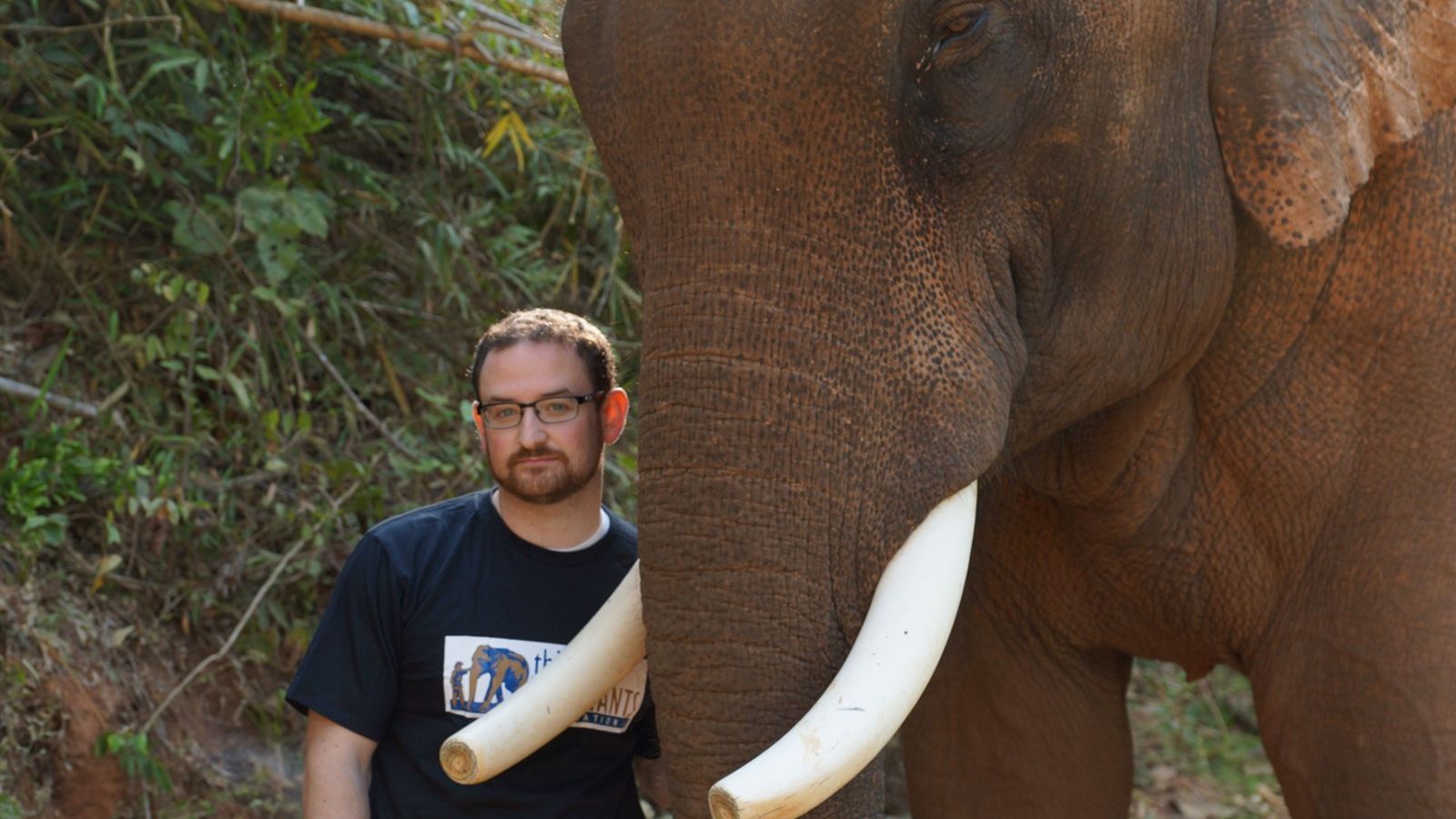Familiarity breeds contempt, the old saw goes, but in the case of the wild Asian elephant it also breeds curiosity — and conflict.
When living near people, they’re not afraid of new things!
That’s one way to summarize the new findings of Joshua Plotnik, his former CUNY Graduate Center PhD student Sarah Jacobson, and his field team, who study the pachyderms near Lampang and Kanchanaburi, Thailand.
The researchers documented for the first time that wild Asian elephants living near farming villages show a greater attraction to novelty — and thus a willingness to explore and mix it up with people — than those living deep in forest preserves.
They published their findings on the elephants’ differing responses in the Royal Society Open Science journal.
The study compared elephant responses to new objects — such as cattle brushes and firehoses — in a remote forest sanctuary and a landscape next to farmland. The elephants living near people were more likely to investigate and interact with the objects, showing greater neophilia, or attraction to novelty.
The findings are important because farmers and elephants share limited land and resources. The behavior may give elephants an edge in finding food such as crops, but it also raises the risk of dangerous encounters with humans. When elephants try to eat crops or other food near villages, farmers often retaliate, sometimes leading to the deaths of people or elephants.
Plotnik’s lab at Hunter has focused on the development of novel human-elephant conflict mitigation methods that take elephant behavior, cognition, and personality into account, with hope leading to more peaceful coexistence between the species.
Plotnik is director of Hunter’s Comparative Cognition for Conservation Lab and Animal Behavior & Conservation Graduate Programs. The lab investigates the behavior and intelligence of various species, including the Asian elephant, to help protect them in the wild.
“Our lab works at the intersection between basic science and applied-conservation research to understand how the study of animal behavior and cognition can contribute effectively to measures promoting human-wildlife coexistence,” said Plotnik, who is also a psychology professor at the CUNY Graduate Center. “This paper closes a loop and furthers that goal.”
In 2024, a 60 Minutes crew spent a week following Plotnik’s elephant research team at its field sites in Thailand. The story examined the team’s work on understanding the mind of the elephant and how it applies those insights to mitigating conflicts between wild elephants and local villagers.
Plotnik and his team have worked in U.S. zoological institutions and in elephant-range countries for almost 20 years. His work has led to discoveries such as elephants can recognize themselves in mirrors, comfort upset friends, coordinate with partners, and are innovative problem solvers. Plotnik has been working with elephants in Thailand since 2007.
Watch the video below


